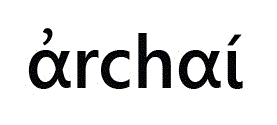Abstract:
In the Poetics (21 1457b6 f.), Aristotle, defines metaphor as the transfer (epiphora) of a term from a given, foreign (allotrios) domain to another one. If, as does the classical doctrine of tropes, we consider that it substitutes the ‘proper’ term, the metaphor has a purely ornamental value and we can do without it. Modern theories insist, on the contrary, on the cognitive value of the metaphor: because it offers a re-description of the world, the metaphor is “alive” (Paul Ricœur). The question is to what extent this cognitive conception of metaphor, in spite of its classical reception, is already at work in Aristotle’s differentiated analysis of the phenomenon, as Ricœur claims. The answer is ‘yes but rather no’. This is because the cognition Aristotle talks about in relation to metaphor is of a special type, a “quasi-cognition”.
Keywords:
metaphor; analogy; similitude; cognition quasi-cognition; understanding; trope; rhetoric; enthymeme; pleasure; Ricœur; Dumarsais

 Thumbnail
Thumbnail
